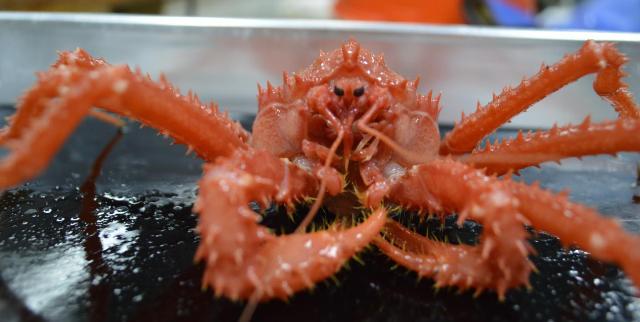-
Tips for becoming a good boxer - November 6, 2020
-
7 expert tips for making your hens night a memorable one - November 6, 2020
-
5 reasons to host your Christmas party on a cruise boat - November 6, 2020
-
What to do when you’re charged with a crime - November 6, 2020
-
Should you get one or multiple dogs? Here’s all you need to know - November 3, 2020
-
A Guide: How to Build Your Very Own Magic Mirror - February 14, 2019
-
Our Top Inspirational Baseball Stars - November 24, 2018
-
Five Tech Tools That Will Help You Turn Your Blog into a Business - November 24, 2018
-
How to Indulge on Vacation without Expanding Your Waist - November 9, 2018
-
5 Strategies for Businesses to Appeal to Today’s Increasingly Mobile-Crazed Customers - November 9, 2018
Antarctica Being Invading by Crabs Thanks to Climate Change
The researchers will be able to apply their study to projections for how Antarctica’s ecosystem will fare over the next several years. In fact, the entire continental shelf of Antarctica is populated by small marine animals that are either filter feeders or capturers of particles. Animals like sea anemones, sponges, sea lilies, and feather stars thrive there, where water is cold enough to protect them from predators. However, due to rising sea levels in deeper waters because of climate change, temperatures have increased to 1.5 degrees Celsius which is twice the global average, helping the king crabs move up the water column.
Advertisement
The study by Richard Aronson, a biological sciences professor at the Florida Institute of Technology, and other researchers found that weather conditions in Antarctica are favorable for invasion by shell-crushing crabs.
The arrival would have a huge impact on local ecosystem as king crabs feed on such kind of soft organisms that are commonly found on Antarctic shelf.
While extremely cold temperatures have created a defense barrier for these creatures, the water is now warming up on and by the shelf.
It will happen due to global climate change.
To the scientists’ surprise, the king crab, also known as Lithodidae, now settled on the shallow waters of the Antarctic Peninsula. They looked stable and producing eggs with the possibility of moving up on the lower end of Antarctic Continental shelf over the next few years. King crabs could have devastating effects on soft-bodied inhabitants of Antarctic waters, they warn. The study revealed that their population was steady and reproducing. Because of their large size and the taste of their meat, many species are widely caught and sold as food, the most common being the red king crab, Paralithodes camtschaticus.
“The only way to test the hypothesis that the crabs are expanding their depth-range is to track their movements through long-term monitoring”, says study co-author James McClintock of the University of Alabama at Birmingham.
Advertisement
To find out how many king crabs are present in the region, Aronson and his colleagues conducted a photographic survey off the Marguerite Bay on the western Antarctic Peninsula and found that more than few crabs were crawling down close to the shelf.




























